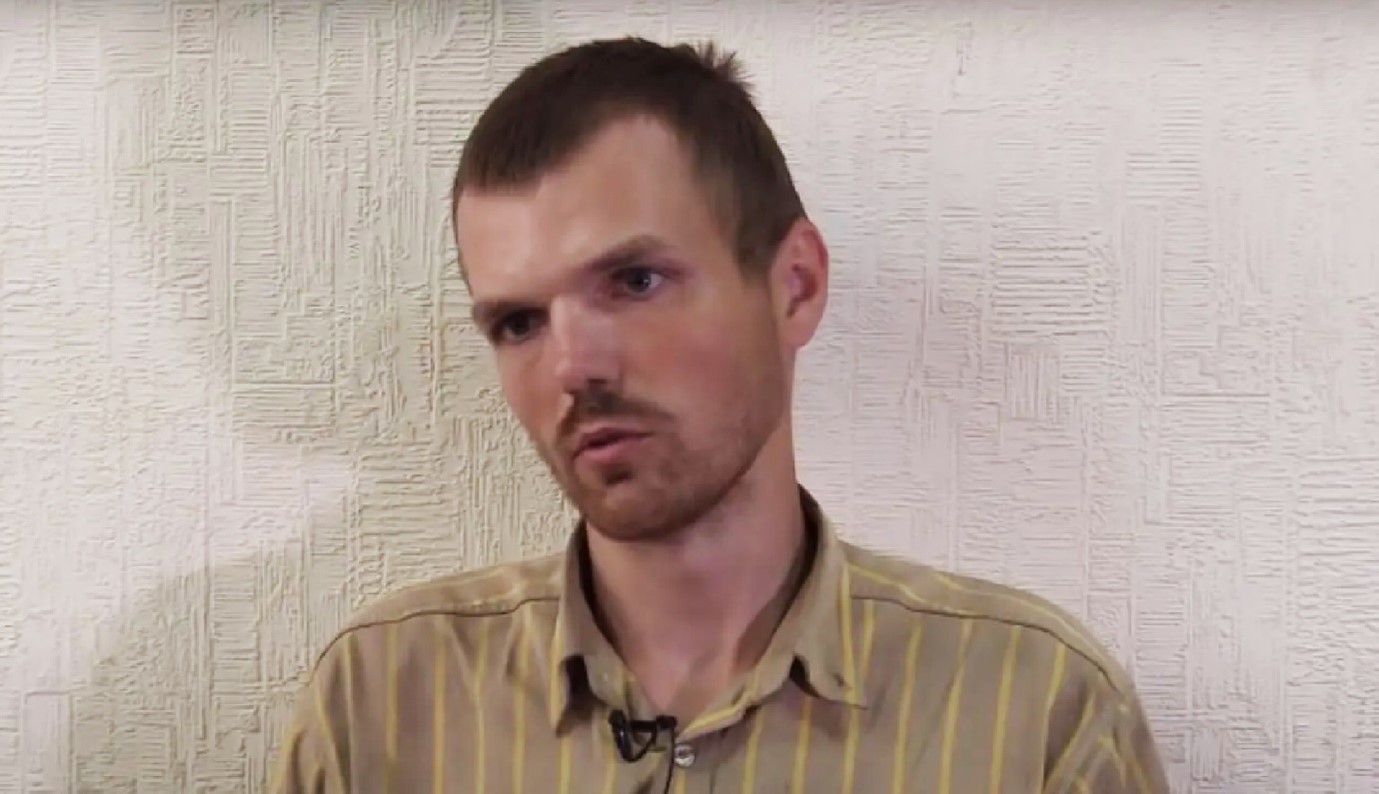Russia stages new ‘trial’ of tortured Ukrainian

A new ‘trial’ is beginning at the notorious Southern District Military Court in Rostov (Russia) of three Ukrainian political prisoners, all of whom have separately received sentences from 18 to 26 years. While near certain that Dmytro Pavlenko and Volodymyr Makarenko have also been subjected to torture, there is particular reason for concern over this new torment of Hryhory Sinchenko who has endured savage, and on at least one occasion, near fatal torture since 2019.
It was learned in October 2025 that the three men were charged with attempting a ‘terrorist act’ in a SIZO, or remand prison, in Rostov-on-Don. The claim is that in July 2024, Dmytro Palenko, who is described as a Russian, although he is from Crimea, suggested to Volodymyr Makarenko and Hryhory Sinchenko that they “take part together in criminal activities” and that both other Ukrainians agreed. Pavlenko purportedly planned a ‘terrorist act’ for 4 November 2024, but this was thwarted. All three men are charged with planning a terrorist act, while Sinchenko is also accused of ‘recruitment’.
Russia’s FSB have been basing trials of Ukrainian political prisoners on claims of thwarted acts of terrorism or sabotage since 2014. These are generally based on ‘confessions’ obtained while detainees were held incommunicado, without access to a lawyer and on ‘evidence’ that is very easily fabricated. Any ‘trials’ based on allegations about men in SIZO are, if anything, even more dubious. Cellmates can very easily be pressured or bribed into giving false testimony. There is effectively no chance of a fair trial, with the three men likely to face extensions to their already long sentences.
According to the Memorial Support for Political Prisoners Project, Dmytro Palenko (b. 14.10.1976) is from Sevastopol and is currently in SIZO, awaiting the appeal against a 21-year ‘special regime’ imprisonment on several ‘terrorism’ charges as well as ‘state treason’. He is described as ‘Russian’, however this may well be purely because Russia has made it impossible to live on occupied territory without taking Russian citizenship. There is extremely little information about the first ‘trial’, but clearly enough for Memorial to have placed him on its list of likely victims of politically motivated persecution.
Volodymyr Makarenko (b. 30.07.1997) is a Ukrainian prisoner of war and recognized Memorial political prisoner, awaiting his appeal against an 18-year sentence. He is one of 15 men who were sentenced to huge terms of imprisonment on 17 October 2025 on profoundly cynical ‘terrorism’ charges. These were based solely on a flawed ruling from the Southern District Military Court declaring the Aidar Battalion, which has, since 2015, been part of Ukraine’s Armed Forces, a ‘terrorist organization’ (more details here).
Hryhory Sinchenko (b. 11.05.1991) has spent a substantial part of the last ten years either imprisoned by Russia’s proxy ‘Donetsk people’s republic’ [‘DPR’] or directly by Russia. He has suffered appalling torture, with this evident from his face during the sentencing in February 2025.
Sinchenko is from occupied Makiivka (near Donets). He had been living in Kherson but returned to territory under ‘DPR’ control in 2016, seemingly in order to reinstate medical records. He became involved in a partisan group opposing Russia’s pseudo ‘Donetsk republic’ and was captured by the so-called ‘DPR ministry of state security’, or MGB on 2 December 2016. He was accused of blowing up cigarette kiosks, and was brutally tortured., with this including the use of electric shocks; asphyxiation and beatings, as well as being suspended for several hours by handcuffs. His mother, Tetiana Hulevska reported that he had been so badly beaten that he suffered a collapsed lung and almost died. He was released in a prisoner exchange on 27 December 2017 but later returned to ‘DPR’ territory.
He was seized again in October 2019 and accused of involvement in the blowing up of a Donetsk radio tower on 27 October 2019. As reported, this was very obviously an act by partisans, with a video of the blast posted on YouTube, together with an ultimatum, reading: “This was done in order to draw attention to the inhuman torture in MGB basements. Ill-treatment and having ones extremities connected to electric wires have become the norm in the “people’s” republics. The people of Donbas must come out in protest against torture or the fascist republic will remain without communications.” In September 2020, Sinchenko ended up in a prison hospital in occupied Donetsk. He had tried to slash his wrists in protest at torture aimed at getting him to give up his lawyer, and to extract false ‘confessions’.
After Russia’s full-scale invasion of Ukraine, Sinchenko was put on ‘trial’ at the Southern District Military Court in Rostov under Russian legislation. It was telling that the original ‘case’ against the young Ukrainian had been initiated in November 2019 under one article of the so-called ‘DPR criminal code’. Once Russia dropped all pretence and ‘tried’ Sinchenko under its legislation, there was a massive increase in charges – a record 47 under Russia’s criminal code. These included ‘spying’ for Ukraine’s Security Service [SBU]; 15 episodes where Sinchenko was accused of illegal possession of arms and explosions; 12 of preparing explosives; six charges of ‘sabotage’ and one of attempted sabotage; and three of attempts on the life of enforcement officers. This extraordinary escalation in charges took place while Sinchenko was held prisoner, either in occupied Donetsk oblast, or in Russia, in particular SIZO No. 2 in Taganrog, which was notorious for its especially savage torture and ill-treatment of Ukrainian civilian prisoners and prisoners of war.
The ‘trial’ was before a panel of three Russian ‘judges’, under presiding ‘judge’ Viacheslav Alekseevich Korsakov. The latter has already been involved in the persecution and long sentences against Crimean Tatar and other Ukrainian political prisoners. He was sentenced on 19 March 2025 to 26 years’ maximum security imprisonment, with the first five years in a prison, the worst of Russian penal institutions. Sinchenko, who has been in Russian captivity since 2019, was also fined 200 thousand roubles.